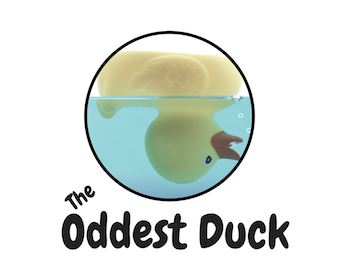I have a novel burning inside me.
When I was a kid, there were two things I loved: computers and books. I think I loved both for the same reason; they presented worlds in which I could immerse myself, and blank sheets of paper onto which I could enforce my creative will. In the end, I chose the route of computers. It suited my talents more naturally, and honestly, paid a lot better.
However, I have found that the urge to write has never really left me. An idea for a story will hit me, and I will work out character and plot. I find myself create worlds in my mind during long commutes or downtime. In particular, one story came to me about 15 years ago. It was raw and incomplete. I tried to write it out immediately as a short story and it was horrible. The difference with this idea is that it never has left me; I might go weeks or months without thinking about it, but it always comes back. Over the years I have taken that kernel of an idea and fleshed it out. It sits nearly complete in my mind. I’ve written a prologue I love, an epilogue I like, and a few sparse chapters that need work. I know that if I don’t finish this thought, turn it into a completed story, that I will always regret it.
Why haven’t I completed it yet? Well, as I’m certain most budding writers with non-writing careers find, life gets in the way. I have a wife and children that need my engagement and my time. I have a demanding career that has often required extended periods of 60 to 80-hour work weeks. I am often worn out at the end of the day. I have other demands such as church activities, house repairs and yard work, and all sorts of other responsibilities that eat up my time. It is difficult to string more than 1-2 hours of free time together.
And that is the problem. I find that if I don’t have 4 or more hours of guaranteed uninterrupted time that I end up not being motivated to write. A novel is a huge task; when I look at all the work that needs to get done, it is intimidating. I feel I can’t accomplish much in short, 1-2 hour chunks. Which is too bad, because it is all I really have.
When thinking about this problem last week, I realized that this is very similar to the problems I’ve encountered in my career as a software developer. There is a lot of work to do. When I look at the big picture, it becomes difficult to decide what needs to get done when there are conflicting priorities. Often, I find myself working on tasks that no longer make sense, but that have been in planning for a long time. Often, I fail to work on tasks that have long-term benefit, instead focusing on smaller, incremental tasks that are being drive by constantly shifting requirements. This matches well to my life, where I do not focus on how I could productively use small chunks of time but end up wasting them by watching TV or browsing the internet.
In the software world, there is a project management methodology for effectively dealing with this problem called Agile. It contains a series of short, iterative periods called sprints, where work for each sprint is prioritized a the beginning of that sprint based on what the team believes they are capable of accomplishing. The beauty of Agile is that it responds to unpredictability well; it allows a project to progress while allowing the prioritization of tasks to be fluid. It offers a great way to plan a product while at the same time not stifle creativity or commit to requirements that may change.
How is this relevant to writing fiction? After all, there will be no “team” writing this book outside of myself. As there is no client or customer, there are no shifting requirements other than those I choose to shift myself. I will address this in my next post.

No comments